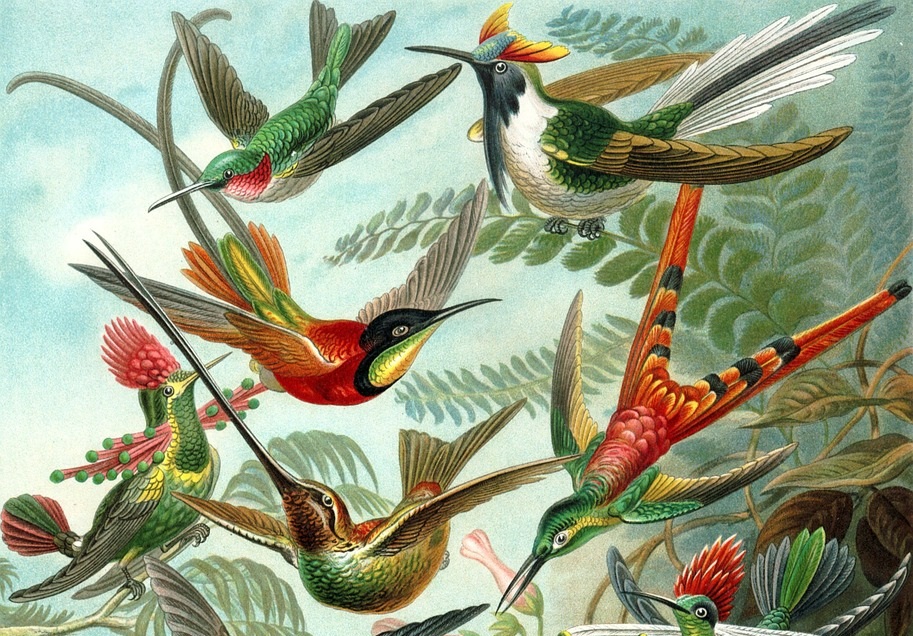On waking from your death
here you will see me
awaiting your hummingbird’s return
transformed into an old tree.
Al despertar de tu muerte
me verás aquí
convertido en un árbol viejo
que espera tu retorno de colibrí.
Dxi guibáni xquendagutilú
rari’ nga suuyu’
naa ma’ naca’ ti yaga yooxho’
cabeza’ guibiguetu’ sica ti biulú.
***
Time won over love
stole mystery from us ruthlessly
and now what do I do with the indifference
with this loneliness
that sometimes hugs me gently
and sometimes chokes me.
Love
my belly is now a dry tree
that once wanted to bloom stars for your nights.
My belly is now a hard mountain
no longer astonished by the passing of time
by the lifeless days.
Nos ganó el tiempo amor
inmisericorde nos arrebató el misterio
y hoy no sé que hacer con ese desamor
con esta soledad
que a ratos me abraza suave
y a ratos me asfixia.
Amor
mi vientre es hoy un árbol seco
que un día quiso florecer estrellas para tus noches.
Mi vientre es hoy una montaña dura
que ya no se asombra por el paso del tiempo
por los días sin vida.
Gudxite ca dxi di laanu
qui ña ca’ zinéca ni bica’chinu
ne yanna qui ganna’ xhi gune’ ne xilase di’
ne guendariuu stubi di’
nu tiru riguidxi naxhi naa
ne nuu tiru rutixhié’ si naa.
Nguiu’ ni gunaxhie’
Ndaane’ naca yanna ti yaga bidxi
ni gucala’dxi’ nudii beleguí ñapa ca gueela’ stiu’
Ndaane naca yanna ti dani naguidxi
ma qui ridxibi pa tidi dxi
pa nu dxi ma guti.
***
A Cry
When the dead go on their way
tears march
one by one down a haggard face
the soul escapes in a cry.
Who will come lift this pain?
Who will keep vigil for me?
Who will comfort my weeping?
Who will be the one to hold my body
on cold nights?
if you are no longer with me
bright star of my mornings
sun of the days of my life.
Who will care for us if you have gone?
Un grito
Cuando los muertos marchan
desfilan lágrimas
una a una avanzan sobre un rostro ajado
el alma en un grito escapa.
¿Quién vendrá a levantar este dolor?
¿Quién velará por mí?
¿Quién consolará mi llanto?
¿Quién será el que abrace mi cuerpo
en las noches frías?
si tú ya no estás conmigo
lucero de mis mañanas
sol de los días de mi vida.
¿Quién cuidará de nosotros si tú has marchado?
Ti ridxi
Dxi riré gue’tu’ lu guidxi
xquenda ruuna’ binni laaca rizá
tobi tobi ma nanda’ca’ lu ti mia’ti’
cabee xquenda lu ti ridxi gaa.
Tu guindisa yuuba di ya’
Tu gu’ya’ naa yanna
Tu gucueza xquedaruuna’
Tu laa quiidxi naa
lu gueela’ ga´nda’
pa lii ma qui guínu’ ne naa
beleguí stinne’
gubidxa rusidxaa ca dxi xquendanabene’.
Tu ngá gu’ya’ laadu pa lii ma zeu’.
*****
Irma Pineda is an author, editor, translator, and educator in Juchitán, Oaxaca, Mexico. Her sixth book of bilingual Spanish-Isthmus Zapotec poetry, Guie’ ni zinebe / La Flor de Se Llevó, was published in 2013. She is the only woman to have been president of Mexico’s national Escritores en Lenguas Indígenas (ELIAC). She is a 2013-2015 member of Mexico’s Sistema Nacional de Creadores de Arte and serves on the faculty of the National Teachers University in Ixtepec, Oaxaca.
Wendy Call is an author, editor, translator, and educator in Seattle. Her 2011 book No Word for Welcome, about Mexico’s Isthmus of Tehuantepec, won the Grub Street National Book Prize for Nonfiction. Her translations of Pineda’s poetry have appeared in a ten journals, including Cincinnati Review, Kenyon Review online, Michigan Quarterly Review, and Orion. She is the recipient of a 2015 NEA fellowship for translation and serves on the faculty of Pacific Lutheran University in Tacoma.
Notes
1) This is the sixteenth and final poem that appears in Irma Pineda’s first collection of poetry, Ndaani Gueela (En el Vientre de La Noche), published by Casa de Cultura de Juchitán, 2005. The poems in this collection were written by the poet with the support of a 2000-2001 grant for indigenous writers from the Fondo Nacional para la Cultura y las Artes, Mexico’s National Endowment for the Arts. It is untitled.
2) This is the seventeenth poem in Irma Pineda’s fifth collection of poetry, Doo yoo ne ga’ bia’ (De la casa del ombligo a las nueve cuartas). Published by the Comisión Nacional para el Desarrollo de los Pueblos Indígenas, 2008. It is untitled.
3) This is the twenty-fourth poem in Irma Pineda’s fifth collection of poetry, Doo yoo ne ga’ bia’ (De la casa del ombligo a las nueve cuartas). This is the first in a series of six poems titled “Ga’ Bia’ / Las Nueve Cuartas.” The collection was published by the Comisión Nacional para el Desarrollo de los Pueblos Indígenas, 2008.

